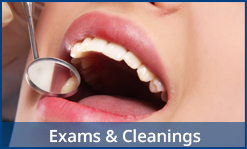If you suffer from chronic dry mouth, you’re not alone. In fact, dry mouth (also referred to as xerostomia) is a common condition for people all around the world. It happens when the salivary glands inside the mouth don’t create an adequate amount of saliva.
There are several symptoms that indicate chronic dry mouth, including dry mouth and/or throat, bad breath, difficulty in speaking or chewing, thick saliva, an altered sense of taste, and problems wearing dentures or other dental appliances.
There are several possible causes for dry mouth, including the following.
- Side effect of medication: Many people experience a dry mouth as a side effect of a prescribed medication. This is especially true for people undergoing chemotherapy and radiation treatments for cancer, but there are a variety of medications that may reduce the production of saliva.
- Disease: Several health issues are related to dry mouth, including diabetes, Alzheimer’s disease, autoimmune diseases, and oral yeast infections. People who have suffered a stroke often suffer from dry mouth.
- Sleep disorders: If you snore loudly, you probably also leave your mouth open when you sleep. This is a common cause of dry mouth.
- Getting older: Seniors often suffer from dry mouth for a variety of reasons, most of which revolve around the use of certain medications. But people who have long-term health issues and/or poor nutrition also experience dry mouth.
- Use of tobacco and/or alcohol. Both of these can leave you with a dry mouth.
- Drug use: People who routinely use recreational drugs (such as marijuana, methamphetamine, etc.) often experience dry mouth.
- Injury: If you’ve experienced an injury to your head and/or neck, or if you’ve had some type of surgery in this area, your salivary gland may be affected, and that can lead to dry mouth.
Whatever the reason may be, if you suffer from dry mouth, you should speak to your doctor or dentist about the best way to treat this condition. Chronic dry mouth can result in tooth decay, gum disease, mouth sores, and/or difficulty in chewing and swallowing your food. Fortunately, there are several effective ways of treating dry mouth. The best way is by treating the cause – quitting tobacco, alcohol, or recreational drug use, for example. But if the root cause is difficult or impossible to resolve, there are other effective treatments that will reduce your dry mouth symptoms. Talk to a medical professional for more information.











